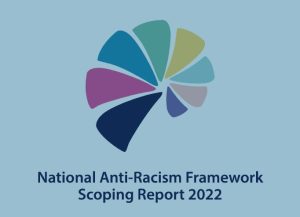Australia closer to a national approach on racism
The Australian Human Rights Commission has published a new report that provides an evidence base and vital next steps for developing a coordinated, national approach to combatting racism in Australia.
The report identifies data collection and education on racism, and cultural safety as key themes. It also identifies media regulation, standards, and legal protections as priority areas for action.
It amounts to a summary of what the Commission heard about a national anti-racism framework from communities, sector organisations, government, scholars, and expert knowledge holders to date.
It also highlights some of the existing good practice anti-racism solutions being undertaken across the nation.
The Commission undertook more than 100 consultations in 48 locations around the nation. Around 160 public submissions were received nationwide, including a significant portion from individuals.
The scoping report is the culmination of these consultations and submissions and it identifies key considerations for the principles that should underpin a framework, three cross-cutting themes consistently raised by participants, and three sector-specific priority areas to guide this work moving forward.
One overarching principle was widespread acknowledgement of the need to centre First Nations experiences, including the experience of colonisation and its ongoing impacts.
The cross-cutting themes and sector-specific priority areas are identified as: data, education, cultural safety, media regulation and standards, justice and legal protections.
 Australia’s Race Discrimination Commissioner Chin Tan said: “Urgent, collective action is needed to combat racism throughout this country. We need to treat racism as a scourge in much the same way we commit to addressing child abuse and family violence.”
Australia’s Race Discrimination Commissioner Chin Tan said: “Urgent, collective action is needed to combat racism throughout this country. We need to treat racism as a scourge in much the same way we commit to addressing child abuse and family violence.”
“This scoping report is the next step in developing a long-term framework to guide actions on anti-racism and equality by government, NGOs, business, communities, and others.
“A national anti-racism framework will provide strategies and specific actions to tackle racism in its interpersonal, institutional, and systemic forms,” Commissioner Tan said.
In March 2021, the Commission released a proposal for a National Anti-Racism Framework in response to enduring community calls for national action after heightened experiences of racism and racial inequality in recent years, particularly during the COVID-19 pandemic. The proposal contained guiding principles, outcomes and strategies to begin a national conversation about anti-racism action.
“We heard about the need to understand racism as a complex, intersectional phenomenon that reaches far beyond ‘race’ and as an all-encompassing force perpetuated across many sites of power by institutions and structures.
“This includes, as a threshold, acknowledging and respecting the experiences of First Nations peoples. When we hold this as a baseline for anti-racism action, we recognise the colonial foundations of Australia, their past and present impacts, and the immense value in drawing upon the unique strengths and leadership of First Nations peoples and communities,” Commissioner Tan said.
From March 2021 to April 2022, the Commission consulted with the public, peak and community organisations, experts, service providers, human rights agencies, and government at all levels on the scope and vision for a Framework.
See the report here: New report lays foundations for Australia’s first National Anti-Racism Framework (humanrights.gov.au)












